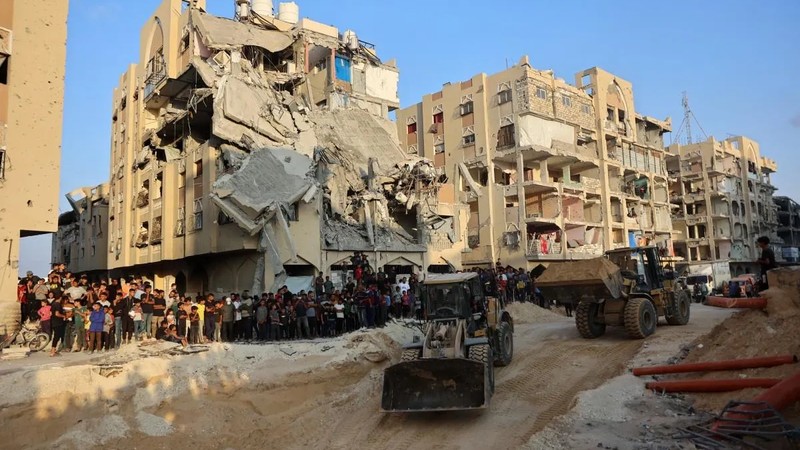WHO’s urgent plea for Gaza: Addressing health needs amidst a humanitarian crisis
Two weeks into the fragile ceasefire in Gaza, a glimmer of hope emerges amidst the chaos. Humanitarian organisations are working tirelessly to deliver much-needed aid and support, yet the reality on the ground remains grim, with reports of ongoing violations and an overwhelming humanitarian crisis, the need for international assistance has never been more urgent.
This was highlighted by World Health Organisation (WHO) director-general Dr Tedros Adhanom Ghebreyesus, who said: “We welcome the return of hostages, the release of prisoners, the cessation of violence and the increase in aid flows.”
Ghebreyesus said the crisis persists, and needs remain huge.
“More than 170,000 people have injuries in Gaza, including more than 5,000 amputees, and 3,600 people with major burns. At least 42,000 people have injuries that require long-term rehabilitation. And every month, 4,000 women give birth in unsafe conditions,” Ghebreyesus said.
Additionally, hunger and disease have not stopped, and children’s lives are still at risk.
“The destruction has been physical but also psychological. An estimated one million people need access to mental health care,” Ghebreyesus said.
He said the health system faces immense pressure, yet much of it has been severely damaged or completely dismantled.
“There are no fully functioning hospitals in Gaza, and only 14 out of 36 are functioning at all. There are critical shortages of essential medicines, equipment and health workers,” Ghebreyesus said.
He said that following the ceasefire, the WHO intensified efforts by delivering more medical supplies, deploying emergency medical teams, and expanding medical evacuations.
Ghebreyesus thanked the more than 20 countries that received Gaza medical evacuees, but said 15,000 patients, including 4,000 children, need treatment outside Gaza. Over 700 died awaiting evacuation.
He said they continue to call for the restoration of referrals to the West Bank, including East Jerusalem; for more countries to receive patients from Gaza for specialised care; and for the Rafah crossing – and all crossings – to be opened, to allow more patients to be treated in Egypt, and to enable the scale-up of aid.
Ghebreyesus said that despite increased aid, the flow remains a fraction of what is needed.
He added that the Rafah crossing was supposed to be opened last week. A substantial amount of aid is currently amassed at Al-Arish in Egypt, awaiting entry into Gaza once the crossing is operational.
“While we are focusing on responding to today’s health needs on the ground, we are also working with partners to plan for the longer-term recovery and reconstruction of Gaza’s health system,” Ghebreyesus said.
He said that in the coming days and weeks, the WHO will focus on four areas:
- Maintaining life-saving and life-sustaining essential health services;
- Strengthening public health intelligence, early warning, and prevention and control of communicable diseases;
- Coordinating health partners; and
- Supporting the recovery, rehabilitation and reconstruction of the health system.
“Our 60-day ceasefire plan asks for US$45 million, but the total costs for rebuilding Gaza’s health system will be at least US$7 billion,” Ghebreyesus said.
He added that the WHO, which was present in Gaza before the war, has remained there throughout, and will continue to stay to assist the people of Gaza in building a healthier, safer, and fairer future.
Meanwhile since the ceasefire, the International Organisation for Migration (IOM) has sent more than 47,000 relief items to Gaza to aid displaced families. Among these are 31,000 shelter items, comprising 2,500 tents.
“People in Gaza have endured unimaginable loss,” said IOM director-general Amy Pope.
“They need help that reaches them quickly and safely, through every possible route and entry point. Shelter isn’t a luxury; it is what allows families to rest, to stay warm, and to begin rebuilding their lives. Without it, recovery cannot begin. Every person deserves to live in safety and dignity, and humanitarian aid, including food, water, medicine, and shelter, must be allowed to reach everyone, everywhere.”
thobeka.ngema@inl.co.za

